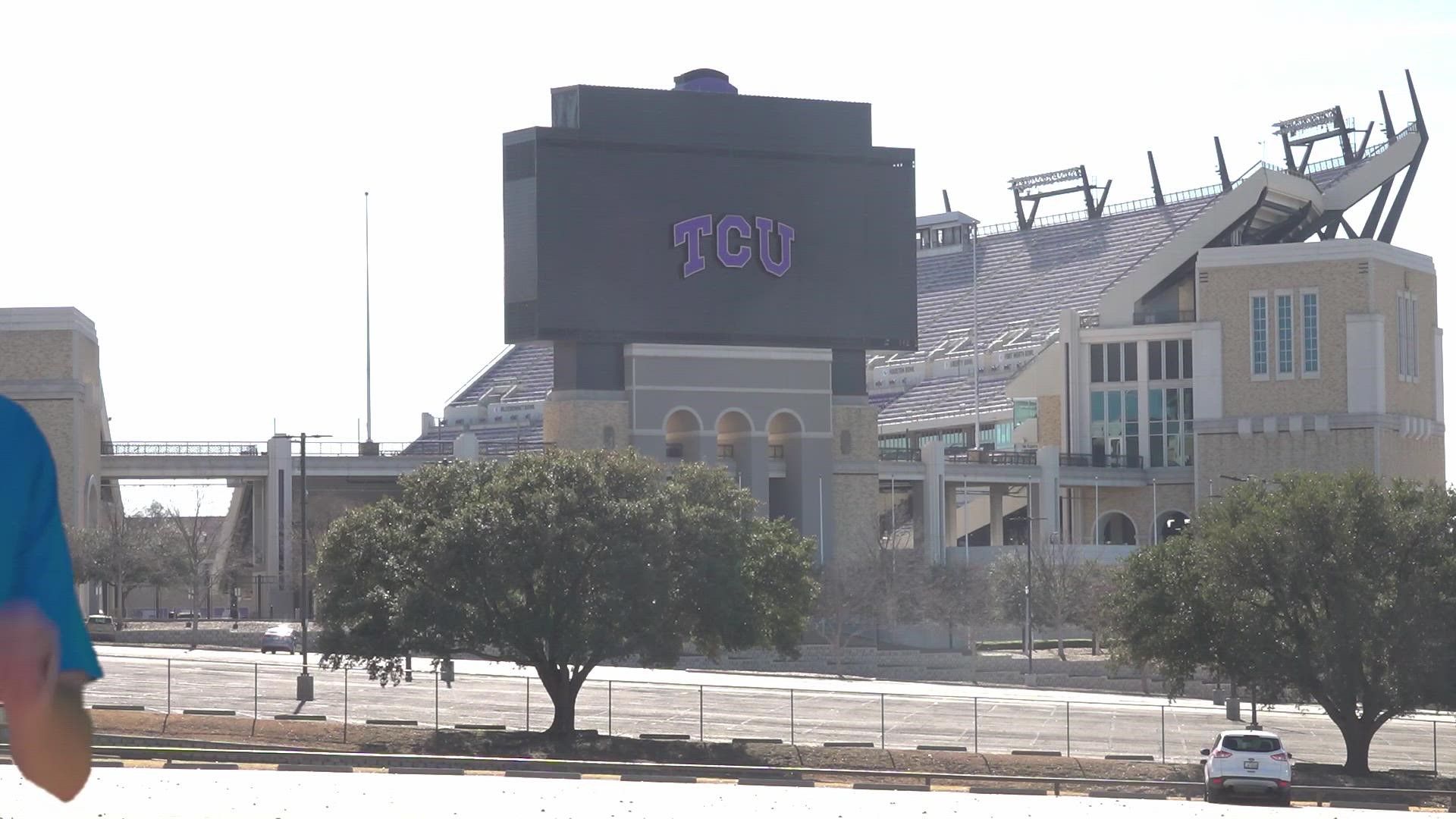WACO, Texas — If TCU wins the College Football Playoff, it will be the first team to win a college football national championship from the city of … Waco?!
“Yeah, TCU was located in Waco for 15 years,” said Jay Black, curator of the Texas Sports Hall of Fame in Waco. “That’s a long time.”
From 1895 to 1910, TCU was on the north side of Waco. Today, the only sign the campus ever existed in Waco is a historical marker along an idle street.
Much of TCU’s history in Waco, photos and other documents, is tucked away at the Texas Collection on the campus of Baylor University.
“I don’t think it’s well known,” said Jeff Pirtle, director of the Texas Collection and university archives at Baylor.
Pirtle believes most people in Waco and Fort Worth are unaware of TCU’s roots in central Texas. Indeed, TCU owes much of its identity to Waco.
Land was originally purchased in Fort Worth by brothers Addison and Randolph Clark in order to start an institution of higher learning. However, as Fort Worth grew a reputation for gambling, liquor and debauchery, the Clark brothers decided to take their plans elsewhere.
They started Add-Ran Male & Female College in Thorp Spring, near Granbury, in 1873.
In 1895, though, Waco lured the school to town by offering the former campus of Waco Female College.
When Waco offered a larger campus and other incentives, the college carried the Add-Ran name to its new home.
“In 1902 they changed their name to Texas Christian University,” Pirtle said.
But TCU isn’t the only name chosen during school’s time in Waco.
“Before the fire ants came in the 1950s, the Horned Frog or the horny toad as it’s known, was pretty common,” Black said.
Those horny toads were all over the Waco campus. So, in 1897, either a student committee or the football team adopted the nickname ‘Horned Frogs.’
In fact, the first team to play college football in Waco wasn’t Baylor, it was TCU. The Frogs won their first game, 8-6, over Toby’s Business College in 1896.
“I don’t know if a die-hard TCU fan would be proud of the fact that their first game was in Waco,” Black said.
If the football team, the name and the mascot originated in Waco, how did TCU end up in Fort Worth?
“There was as fire at the main academic building at the TCU campus,” Pirtle said.
“The city wanted TCU to stay,” Black added.
Waco offered TCU a lot of money to stay and rebuild. Baylor held fundraisers and offered use of its facilities while TCU worked on recovering from the fire.
However, a handful of other cities attempted to lure TCU out of Waco. Fort Worth’s offer was too good to pass up.
“Two-hundred-thousand dollars along with some land,” Pirtle said. “So that’s why they took the offer to get back to Fort Worth.”
Just like that, in 1910 TCU’s days in Waco were over.
Knowing that Baylor’s biggest rival was once on the other side of town, is it enough for Wacoans to cheer for TCU in a national championship?
“They may not admit it publicly, but I think Baylor fans have to admire what Sonny Dykes has done in year one,” Black said.
Why wouldn’t they?
If the national championship was being played 115 years ago, TCU would bring the title back to Waco, so it’s almost like Waco can claim it, right?
“I think Waco can claim it and Baylor can as well just because Baylor was very welcoming to TCU when they moved here in 1895,” Pirtle joked.
Just hang the banner already: “Waco, home of the maybe, kind of, sort of, but not really, this is a stretch, 2022 national champs.”
More TCU coverage:

